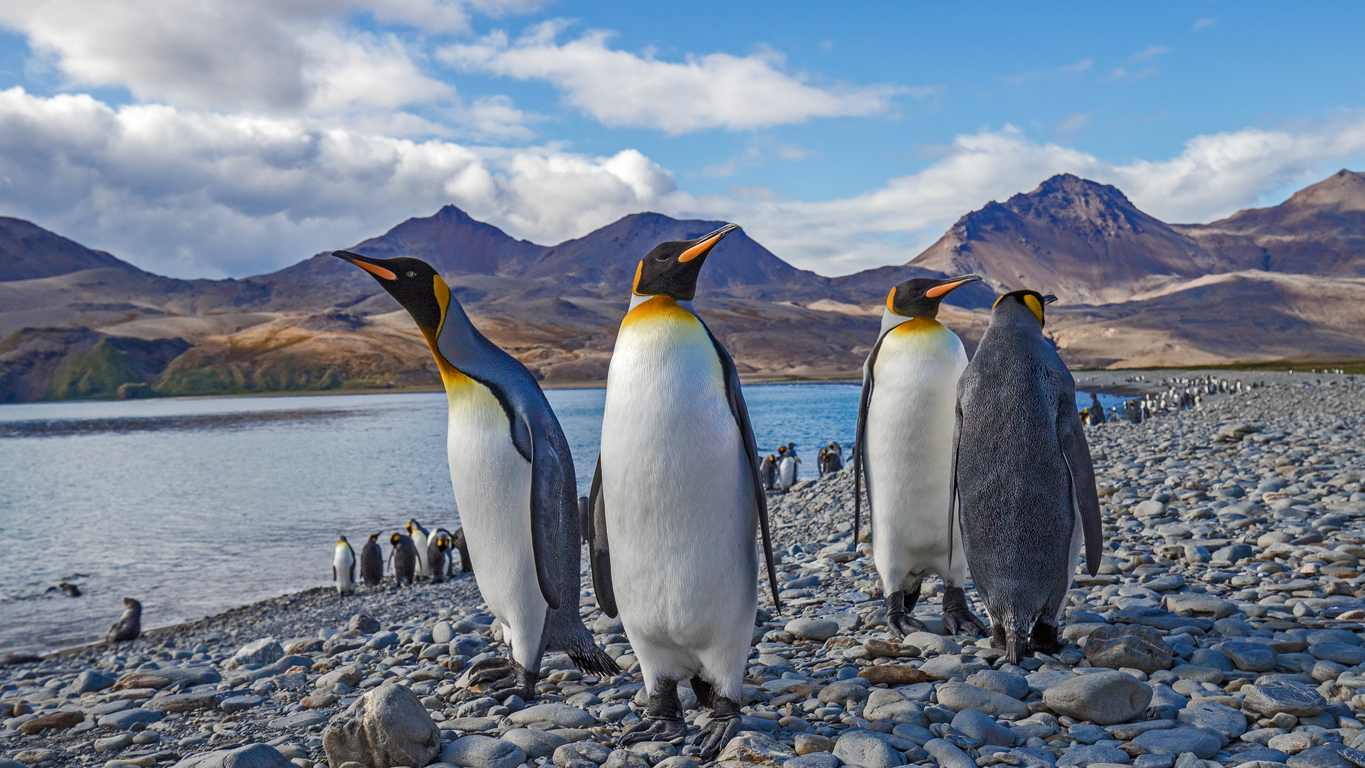Here's what may happen now that a giant iceberg has split into a dozen pieces


A free daily email with the biggest news stories of the day – and the best features from TheWeek.com
You are now subscribed
Your newsletter sign-up was successful
Back in December, reports warned that a 1,620-square-mile iceberg, which broke off from the Antarctic peninsula, was on course to collide with South Georgia Island in the southern Atlantic. In doing so, scientists feared, it would crush coral, sponges, and plankton on the sea floor and also cut off seals and penguins from their normal hunting grounds, forcing them to make long and dangerous detours. As it turns out, The Wall Street Journal reports, "warmer waters and the torque of the current have shattered" the iceberg, known as A68a, into a dozen pieces, which look like they'll drift farther north and miss South Georgia Island.
If that's the case, the penguins and seals will be spared from the collision, and the drifting icebergs may instead cause more problems for humans, possibly obstructing shipping lanes. Still, there are significant risks to marine life, the Journal reports. As the icebergs melt, there would be an influx of cold fresh water into the ocean, potentially killing off phytoplankton and throwing the food chain off kilter. Without phytoplankton, the krill that feed on them would starve, which would in turn lead to "depleting populations" of fish, seals, penguins, and whales.
A research team from the British Antarctic Survey is on its way to study the affects the icebergs have on the area's marine ecology and get a sense of what to expect should more icebergs break off from the Antarctic ice shelf amid rising global temperatures. "Everyone is pulling out all the stops to make this happen," Povl Abrahamsen, an oceanographer and research team leader, told the Journal. Read more at The Wall Street Journal.
The Week
Escape your echo chamber. Get the facts behind the news, plus analysis from multiple perspectives.

Sign up for The Week's Free Newsletters
From our morning news briefing to a weekly Good News Newsletter, get the best of The Week delivered directly to your inbox.
From our morning news briefing to a weekly Good News Newsletter, get the best of The Week delivered directly to your inbox.
A free daily email with the biggest news stories of the day – and the best features from TheWeek.com
Tim is a staff writer at The Week and has contributed to Bedford and Bowery and The New York Transatlantic. He is a graduate of Occidental College and NYU's journalism school. Tim enjoys writing about baseball, Europe, and extinct megafauna. He lives in New York City.
-
 The mystery of flight MH370
The mystery of flight MH370The Explainer In 2014, the passenger plane vanished without trace. Twelve years on, a new operation is under way to find the wreckage of the doomed airliner
-
 5 royally funny cartoons about the former prince Andrew’s arrest
5 royally funny cartoons about the former prince Andrew’s arrestCartoons Artists take on falling from grace, kingly manners, and more
-
 The identical twins derailing a French murder trial
The identical twins derailing a French murder trialUnder The Radar Police are unable to tell which suspect’s DNA is on the weapon
-
 Earth is rapidly approaching a ‘hothouse’ trajectory of warming
Earth is rapidly approaching a ‘hothouse’ trajectory of warmingThe explainer It may become impossible to fix
-
 At least 8 dead in California’s deadliest avalanche
At least 8 dead in California’s deadliest avalancheSpeed Read The avalanche near Lake Tahoe was the deadliest in modern California history and the worst in the US since 1981
-
 The plan to wall off the ‘Doomsday’ glacier
The plan to wall off the ‘Doomsday’ glacierUnder the Radar Massive barrier could ‘slow the rate of ice loss’ from Thwaites Glacier, whose total collapse would have devastating consequences
-
 Can the UK take any more rain?
Can the UK take any more rain?Today’s Big Question An Atlantic jet stream is ‘stuck’ over British skies, leading to ‘biblical’ downpours and more than 40 consecutive days of rain in some areas
-
 As temperatures rise, US incomes fall
As temperatures rise, US incomes fallUnder the radar Elevated temperatures are capable of affecting the entire economy
-
 The world is entering an ‘era of water bankruptcy’
The world is entering an ‘era of water bankruptcy’The explainer Water might soon be more valuable than gold
-
 Climate change could lead to a reptile ‘sexpocalypse’
Climate change could lead to a reptile ‘sexpocalypse’Under the radar The gender gap has hit the animal kingdom
-
 The former largest iceberg is turning blue. It’s a bad sign.
The former largest iceberg is turning blue. It’s a bad sign.Under the radar It is quickly melting away
